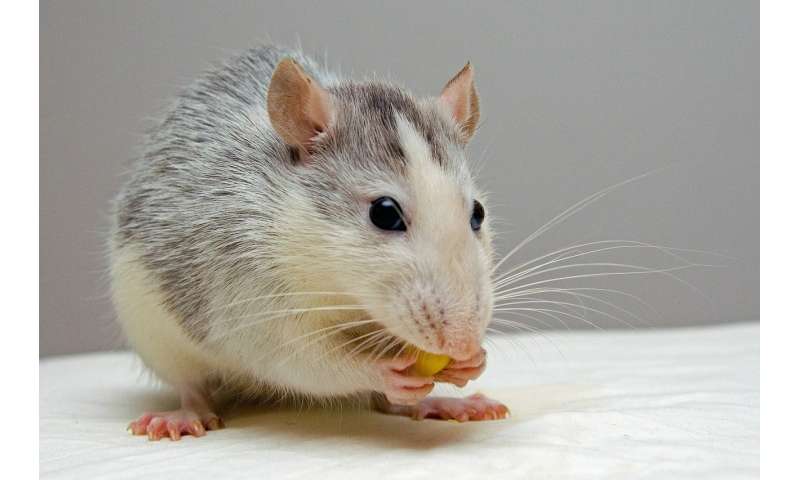
A team of researchers at the Nagoya University Graduate School of Medicine in Japan has found what they describe as the central master driver of psychosocial stress responses in rats. In their paper published in the journal Science, the group describes their experiments with rats and what they learned from them.
Stress in humans is both a mental and emotional type of strain or tension that typically results from adverse or demanding circumstances. It also is very often accompanied by physical reactions, such as sweating, an increase in heart rate or heightened blood pressure. Prior research has suggested that stress is a leftover remnant from the distant past, when human ancestors developed a keen fight or flight response to threats.
In modern times, such a response is seldom needed, but it can be triggered by less life-threatening events such as being chewed out by a boss. Prior research has also shown that people who experience stress on a regular basis tend to have negative health experiences such as hypertension. Because of that, scientists have been studying stress to learn more about the factors behind it and to determine if there might be a way to dampen its impact on the body. In this new effort, the researchers sought to find the controlling mechanism for stress in rats.
Source: Read Full Article